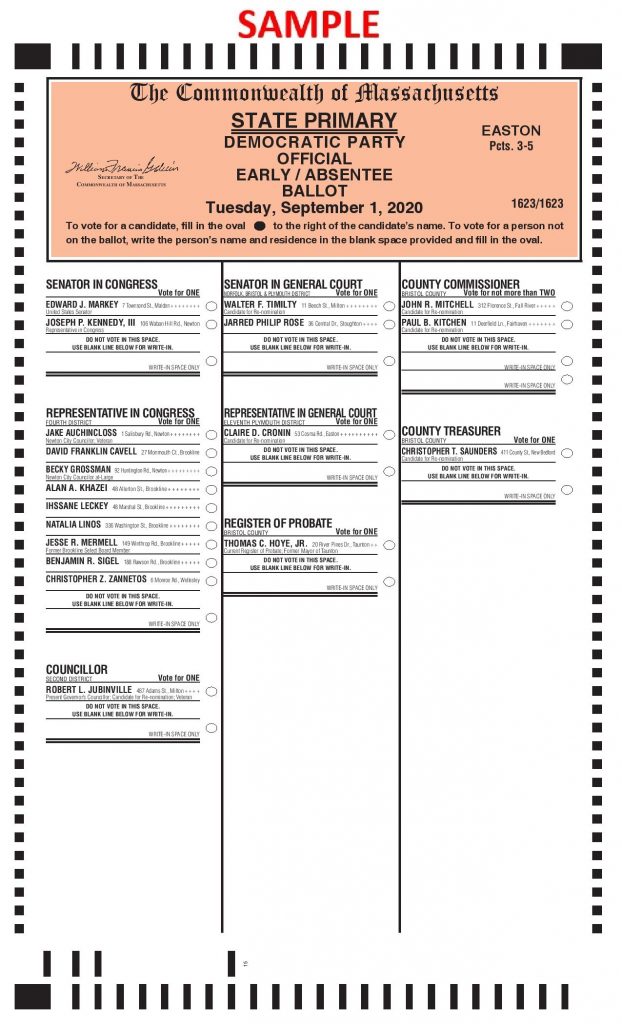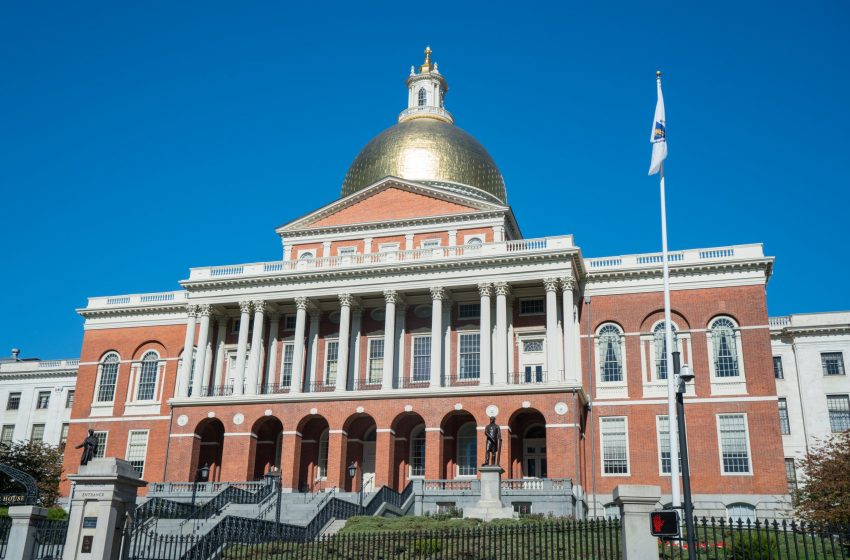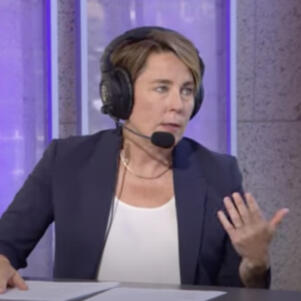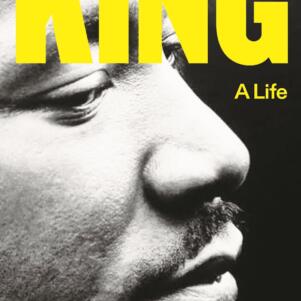Ballot Format Could Be Gift For Jake Auchincloss in Race for Congress, Experts Say
By Tom Joyce | August 25, 2020, 17:26 EDT
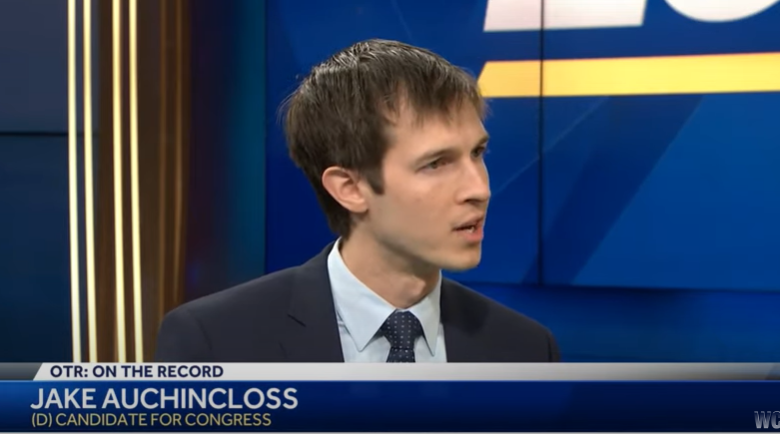
If Jake Auchincloss wins next Tuesday, he might have the alphabet to thank.
Residents of Massachusetts’s Fourth Congressional District have nine choices on their Democratic ballot for who they want to replace U.S. Representative Joseph P. Kennedy III (D-Newton) in the U.S. House of Representatives.
In a race where name recognition isn’t high among voters and there’s no clear favorite to win the race, will the ballot order matter? Will listed accolades matter?
If that’s the case, will it benefit the candidate at the top of the ballot? If so, that would be good news for Newton city councilor Jake Auchincloss, since the ballot goes in alphabetical order by last name, as required by Massachusetts law. The exception to the rule is presidential primaries.
The Easton town clerk’s web site revealed the ballot order earlier this month. It goes: Auchincloss, former Massachusetts assistant attorney general Dave Cavell (who dropped out), Newton city councilor Becky Grossman, City Year founder Alan Khazei, democratic socialist Ihssane Leckey, social epidemiologist Natalia Linos, former Brookline selectman and Planned Parenthood employee Jesse Mermell, former civil litigator Ben Sigel, and finally tech/cybersecurity businessman Chris Zannetos.
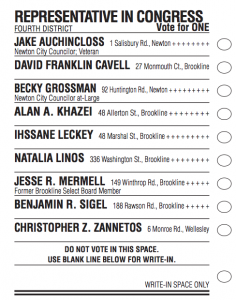
Source: Easton Town Clerk web site
The first independent poll in the race put out by Data For Progress showed that 45 percent of voters were still undecided last week, while Auchincloss and Mermell were in the lead with 12 percent support. Mermell is seventh in the ballot order.
A study put out by the University of Pennsylvania found that the first candidate on the ballot is 4.8 percentage points more likely to win a race than the average candidate on the ballot, whereas the median ballot position is 2.5 percentage points less likely.
Additionally, a 2004 study conducted by Yale found that in the 1998 Democratic primary in New York City, where the city rotated the ballot order by precinct, in 71 of the 79 districts the candidates listed first outperformed how they did when listed anywhere else on the ballot.
So could this phenomenon benefit Auchincloss? Four political scientists New Boston Post spoke with on Monday said it’s possible.
Massachusetts Institute of Technology political scientist Charles Stewart III said the order won’t necessarily hand the election to Auchincloss, but he’s in the best possible spot.
“The political science literature has found a pretty consistent advantage of 1 – 2 percentage points to being at the top of the ballot. (This is called the ‘primacy effect’ in the literature.) Measured another way, it looks like something along the lines of 10% of candidates who win after being at the top of the ballot would not have won if they were further down the ballot,” Stewart told New Boston Post in an email message. “The effect is the strongest for well-known candidates, incumbents, when the field is large, and when it’s a primary.
“Much of this bodes well for Auchincloss, who likely will get a small bump from being at the top of the list,” he added. “However, It is just a point, and I suspect that other things have happened in the campaign since the poll that may have pushed people away from undecided.”
Franklin Pierce political scientist Christina Cliff expressed a similar sentiment.
“Yes, there is a LOT of research on the ‘ballot order effect’ and that being listed first on a ballot in primary elections (but not as much in general elections) does, in fact, benefit that individual,” Cliff told New Boston Post by email. “In fact, there is enough evidence that some courts have used ballot order effects in evaluating contested outcomes of elections. Some states, such as California, have required alphabetical randomization to try and eliminate this effect.”
Iowa State political scientist Mack Shelley said in a race like the one Auchincloss is in, the ballot order could be even more advantageous than usual.
“The key drivers of that effect appear to be low information about candidates and ambivalent attitudes of voters toward the candidates among whom they have to select,” Shelley wrote in an email message. “From what I have seen about the MA-4 Democratic primary specifically, no candidate as yet has had a breakout moment, and that is likely to accentuate the impact of name order on the ballot in the presence of a large percentage undecided and a relatively thin scattering of support among the candidates otherwise.”
Andrew Smith, a political scientist from the University of New Hampshire, told New Boston Post not only that the order helps Auchincloss, but also that Commonwealth of Massachusetts should consider mixing up the order on ballots so that no one candidate has the advantage all over the district moving forward.
“In any campaign poll, it is best practice to randomly rotate the names of candidates to eliminate response order effects, especially when there is a list of choices that are not familiar to the respondent,” Smith wrote. “That 45% say they are unsure of who they will vote for is strong evidence that the candidates are mostly unknown.”
Smith also said the first independent poll in the Fourth Congressional District race probably isn’t the most accurate since it did not indicate whether or not the people questioned were likely to vote. Polling respondents generally as opposed to limiting them to likely voters tends to produce significantly different results.
The Fourth district ballot also lists the political offices that three of the candidates hold. For Auchincloss it says “Newton City Councilor,” and notes his veteran status; Auchincloss served as a U.S. Marine captain. For Grossman, it says “Newton City Councilor at-Large.” And for Mermell it says “Former Brookline Select Board Member,” meaning selectman.
Early voting in Massachusetts began on August 22 and will run through August 28, although the primary election is Tuesday, September 1. Anyone eligible to vote can vote by mail.
Auchincloss’s campaign could not be reached for comment on Sunday or Monday.
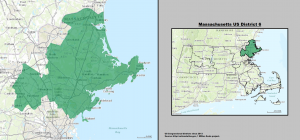
Massachusetts Sixth Congressional District (as of 2012), courtesy of Wikipedia
Massachusetts Fourth Congressional District cities and towns:
Middlesex County:
city of Newton and town of Hopkinton
Norfolk County:
town of Bellingham (Precincts 1, 2, 3, and 4); towns of Brookline, Needham, Wellesley, Dover, Medfield, Millis, Medway, Franklin, Norfolk, Wrentham, Plainville, Foxborough, Sharon
Worcester County:
towns of Milford and Hopedale
Bristol County:
city of Attleboro (Ward 4, Precinct C; Ward 5, Precinct C; Ward 5, Sub-Precinct B1; Ward 6, Sub-Precinct C1) and city of Fall River (Wards 6, 7, 8, and 9); city of Taunton; town of Raynham (Precincts 3 and 4 and Sub-Precincts 1A and 2A); towns of North Attleborough, Norton, Mansfield, Easton, Berkley, Dighton, Freetown, Rehoboth, Seekonk, Somerset, and Swansea

